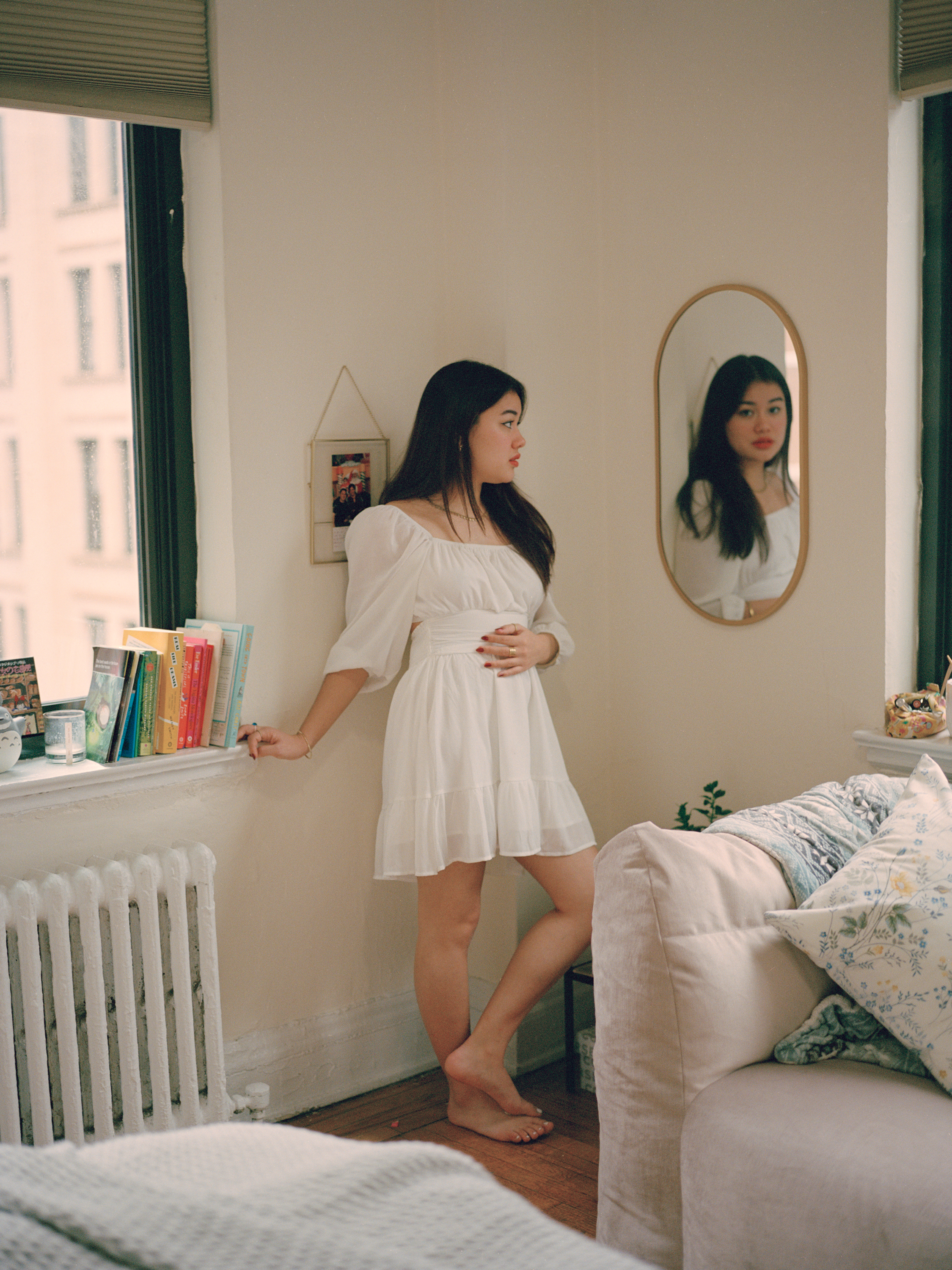Carmen Alvarez
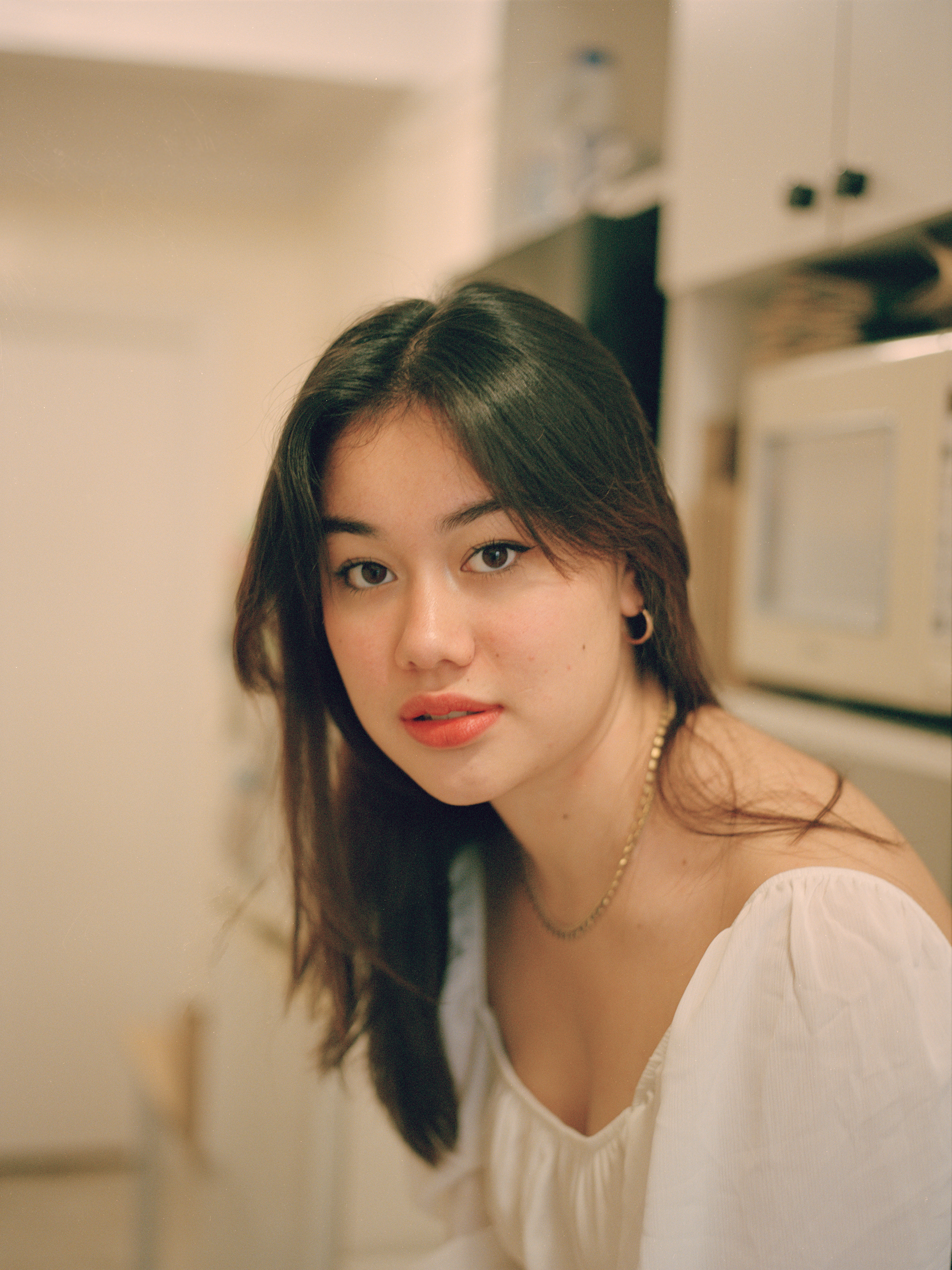
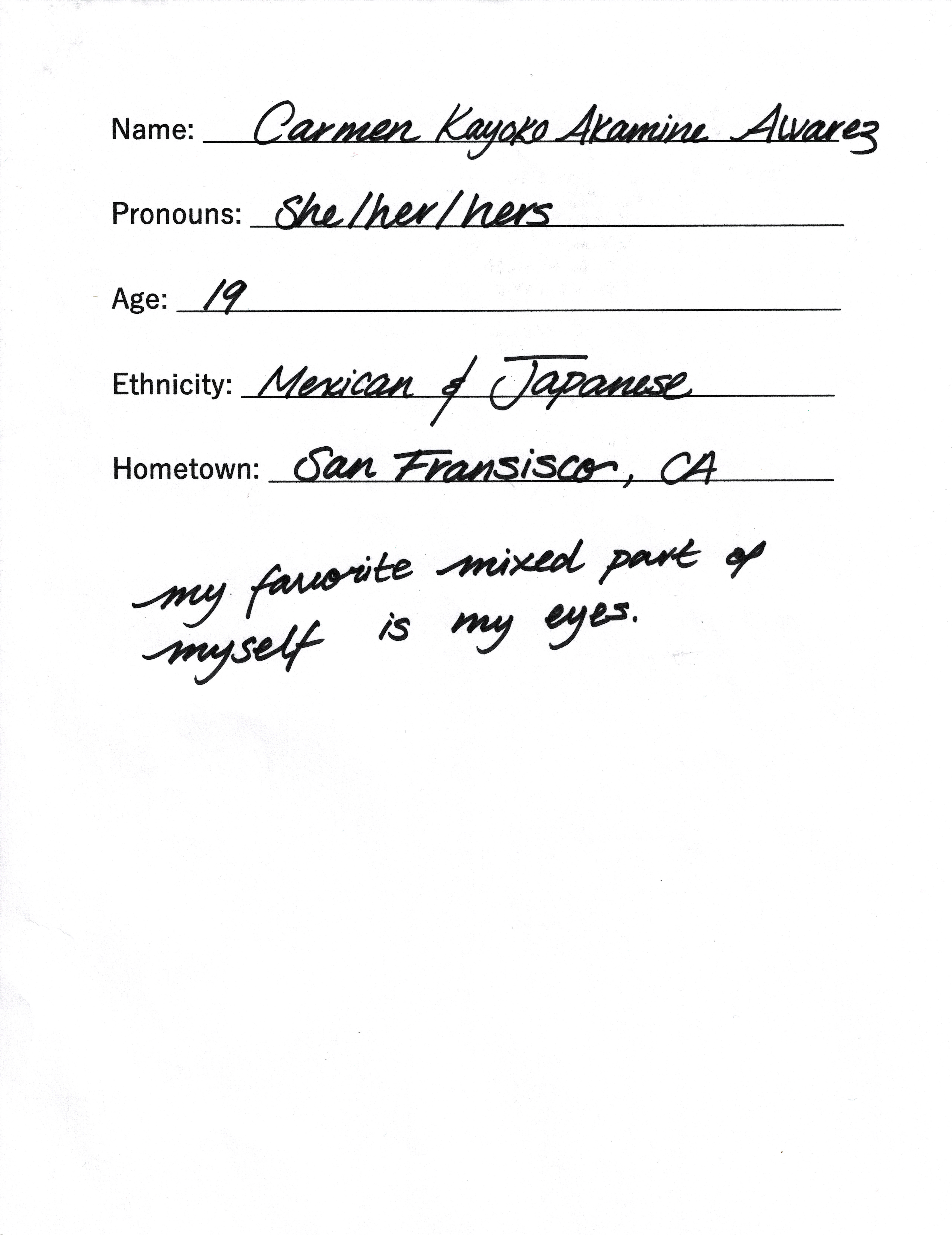
My mom is Mexican and my dad immigrated [from Japan] when he was five years old to Seattle, Washington. My mom grew up in Mexico, and she came to California for her PhD at Stanford, and that's how they met. And then I was born here, and I've also lived in Mexico and traveled to Japan. So I'm Japanese and Mexican, but it's not the traditional immigrant child experience.
I feel like [people] recognize that maybe I'm Asian, but they don't know what the other part of it is. And just because I'm closer with my mom, I feel closer to Mexican culture, so when I talk to people, they're like, “oh, she's Mexican” and they'll forget I'm Japanese. So I think, for society, it's very confusing to look at me and try to figure out what I'm mixed with.
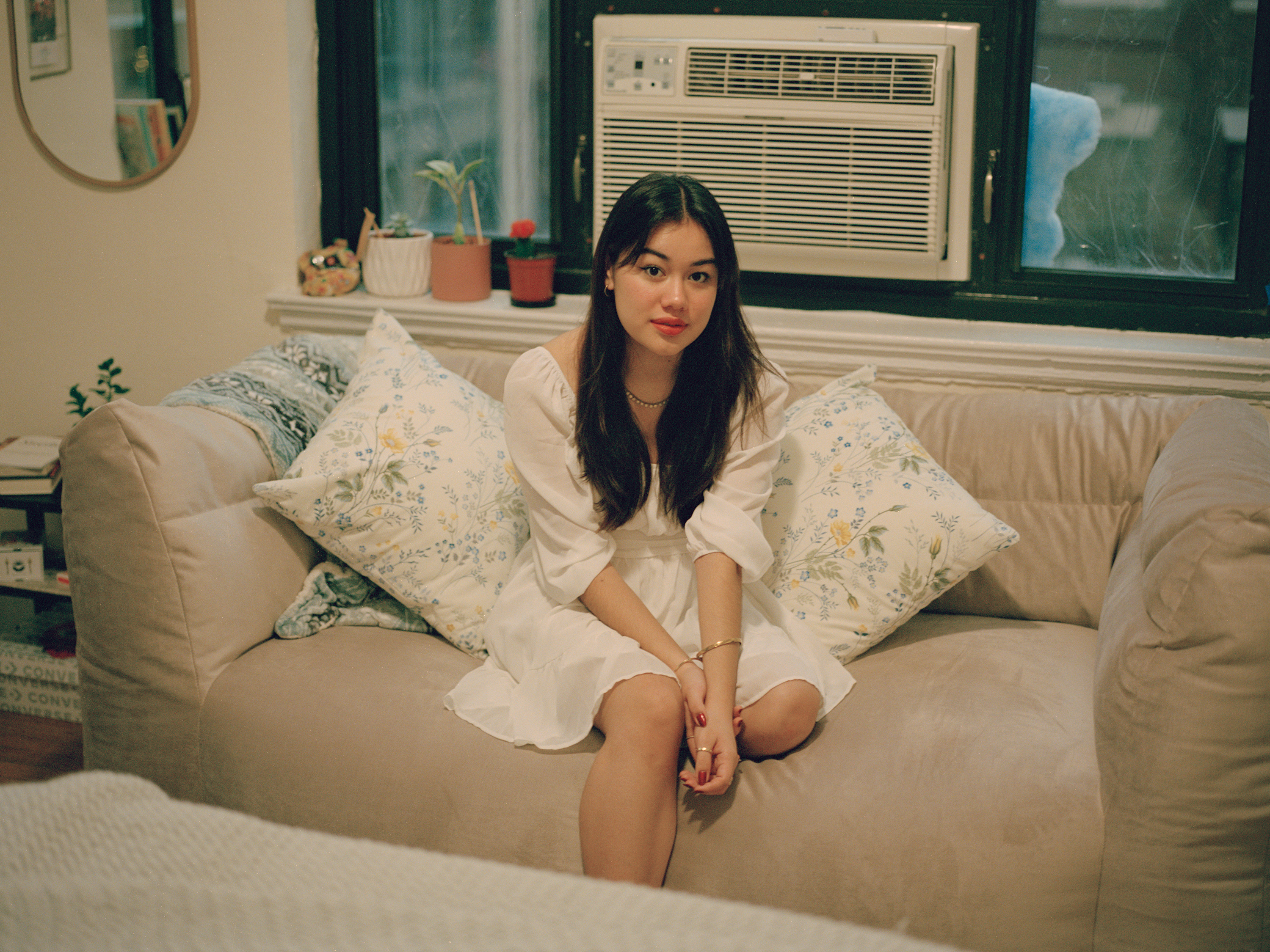
Society not being able to recognize you, and how that applies to being represented in movies and stuff like that, is difficult, but I think the hardest part is within my family. Like, visiting the Asian side of my family and not looking like everyone else or visiting the Mexican side and being much paler, because I am Japanese, I think that's [harder], especially because both cultures value community so much. Even if in society I don't fit in, I can cope with that a little bit, especially since our generation is super mixed and it'll keep getting more mixed as we go on. But within the interpersonal family dynamics, I think that's where it's the hardest to be mixed.
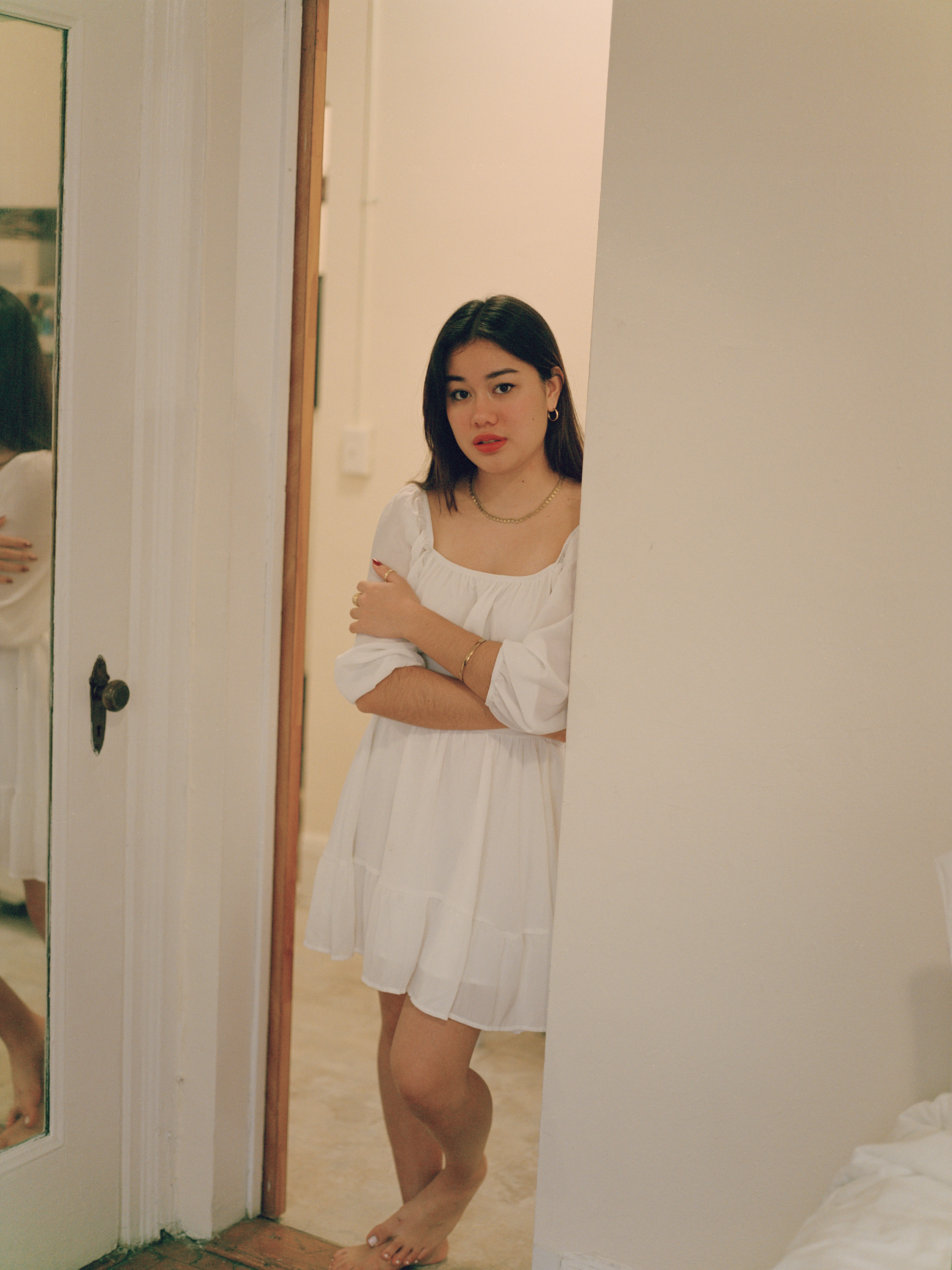
I grew up speaking Spanish and Japanese, and then I went to preschool and learned English and lost the Japanese, but kept the Spanish. So with the connection to language, it's already easier to connect to one side of my ethnicity. And plus I'm just closer to my mom, like I think it's a mother-daughter bond. So, I don't speak Japanese, I don't know that much about the culture—I [only] know as much as my dad taught us, like Japanese superstitions, or how to say “cheers” or “I'm hungry,” or taking your shoes off before you go into the house, but I wouldn't be able to go to Japan and be like, “I'm from here.” Whereas whenever I visit my family in Mexico, I know all those customs but I can also participate in them, and that's why I feel much closer to the Mexican side.
So yeah, I think it's harder when you're closer to one parent and knowing that you're disconnected from the other one, but being able to find that again is so fun and getting to meet all these people [in college] and then learning about myself through them, I think that's really what's exciting to me.
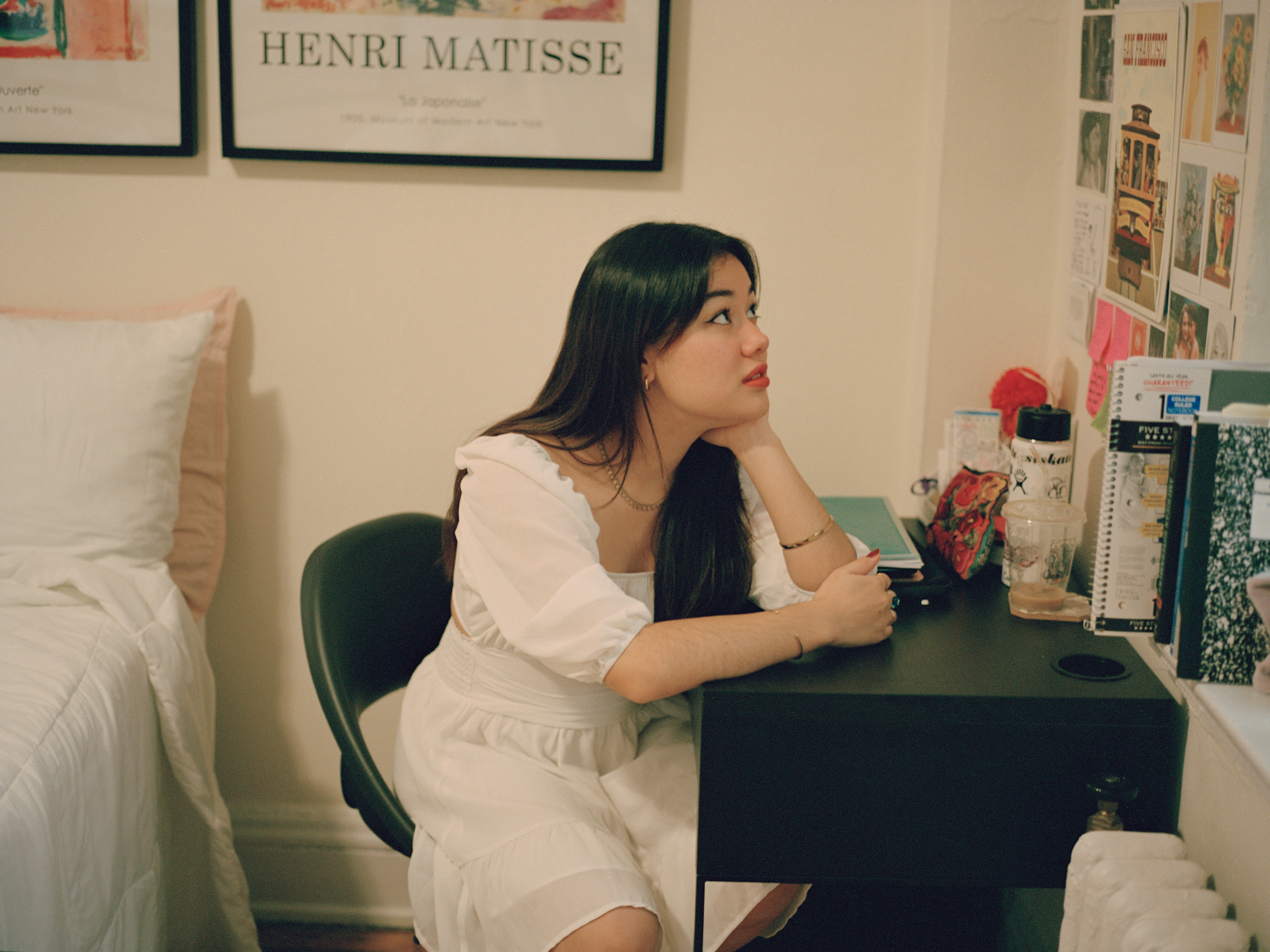
I love [living in New York City] because I'll see strangers and I'm like, “oh my gosh, I kind of look like you,” you know, like feeling recognized in other people is interesting. Even if they're strangers just passing by or getting a coffee, I'm like, wow, I really fit in because no one fits in. Everyone looks different and I'm part of that, which is great.
I think within the college classroom it's a little harder just cause my major in particular is very white. And they're trying to change it, but I think in the performing arts industry, and the arts industry in general, it's easier to be white just because of history and because of what people want or what people have access to. Last year it was just me and one other Asian guy in our class the entire year, and it was weird because we didn't talk about being Asian or connect [over] it. There was one other half Latino guy, and we also didn't talk about it. So it's like, how can I make this very white classroom more open and aware that we're also here? And it's not that anyone is excluding us, but it is weird when everything seems to be geared towards the white students.
I think California is a very mixed state, which is good. There's a lot of Asian immigrants and a lot of Latino immigrants, so I would always find my people somewhere, but I went to private school my entire life, and then for high school I went to a private Catholic school, and only 30% of the students were actually people of color. We had a club called Dedicated to Diversity for racial activism and things like that, but there was no Asian student union or Black student union. I founded the first Latino student union at my high school, which felt good, but there were also not enough Latinos to make a strong club out of it, so we were pretty small.
